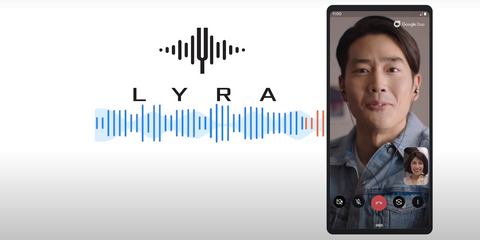The past year has shown the importance of online contact in our daily lives. It has never been more necessary to communicate clearly online, regardless of where you are or what network conditions are open. Google took a initiative to make this process easier. That's why, In February, they unveiled Lyra, a ground-breaking new audio codec that uses machine learning to create high-quality voice calls.
Lyra, an on-device computing power technology, has aided in the mitigation of network access issues. However, in some areas, such as developing countries, infrastructure must be modified to allow for the onboarding of a large number of new users. After all, COVID-19's expansion of telework has increased the demand for dependable communication technology ability.
Indeed, Lyra is very close to conventional audio codecs, which have basically served as the Internet's backbone for decades. Although conventional codecs have focused on digital signal processing (DSP), Lyra goes a step further by generating a high-quality voice signal using a generative model.
That is why Lyra's open source nature aims to improve user usability. Lyra is also expected to have other benefits, such as archiving vast volumes of speech, reducing network congestion in emergency situations where many people are making calls at the same time, and conserving battery power thanks to the computationally cheap Lyra encoder.
The above informations are collected from this & this sites. This is a cross post & the main post link
